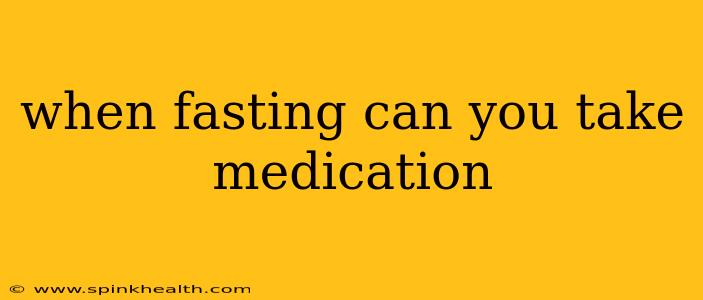Navigating Medication and Fasting: A Guide to Safe Practices
Fasting, whether for religious observance, weight management, or health reasons, has gained significant popularity. However, a crucial consideration for many is how fasting interacts with their medication regimen. The short answer is: it depends. The interaction between fasting and medication varies greatly depending on the type of medication, the fasting protocol, and individual health conditions. Let's delve into the complexities of this topic.
My name is Dr. Evelyn Reed, and I've spent years researching the interplay between lifestyle choices and medication efficacy. This information is for general knowledge and should not be considered medical advice. Always consult your physician or pharmacist before making any changes to your medication schedule during a fast.
Can I take my medication with water during a fast?
This is the most common question, and the answer is nuanced. Many medications are perfectly safe to take with a small sip of water during a fast. However, some medications require food for proper absorption. Taking them on an empty stomach could lead to reduced effectiveness or even stomach upset. Always check with your doctor or pharmacist about your specific medications. They can advise you on whether taking your medication with water is suitable during your fast.
What medications should I avoid taking during a fast?
Certain medications are best taken with food to prevent gastrointestinal distress. These often include medications that can irritate the stomach lining. Furthermore, some medications rely on food for optimal absorption. Taking them on an empty stomach might significantly reduce their effectiveness. Again, your doctor or pharmacist is your best resource to determine which medications you should adjust your schedule for.
Does the type of fasting affect medication intake?
Absolutely! The type of fasting significantly impacts medication timing. Intermittent fasting, for instance, usually involves a defined eating window and a fasting period. During the fasting window, you'll need to carefully manage medication intake based on your doctor's guidance. Prolonged fasting, on the other hand, may require a more comprehensive medication strategy that your doctor can help you formulate.
What if I miss a dose of medication while fasting?
Missing a dose of medication is never ideal, regardless of whether you're fasting. Never double up on doses without consulting your doctor or pharmacist. Contact them immediately to discuss the best course of action. They'll advise you on whether to take the missed dose or simply resume your regular schedule.
How does fasting affect the effectiveness of my medication?
The effect of fasting on medication efficacy is highly individualized. Some medications may be unaffected, while others might show reduced effectiveness or increased side effects when taken on an empty stomach. This is why consulting your healthcare provider is so crucial. They can assess your specific medications and health conditions to give tailored advice.
Are there any potential interactions between fasting and specific medications?
Yes. Specific interactions exist between certain medications and fasting. For example, some medications might increase the risk of hypoglycemia (low blood sugar) when taken without food, particularly in individuals with diabetes. Again, personalized advice from your doctor is essential.
In Conclusion:
Navigating medication while fasting requires careful consideration and communication with your healthcare provider. Don't hesitate to reach out to your doctor or pharmacist; they are invaluable resources to ensure you manage your medications safely and effectively during your fast. Prioritizing your health and safety should always be paramount. Remember, this information is for general knowledge only and is not a substitute for professional medical advice.

